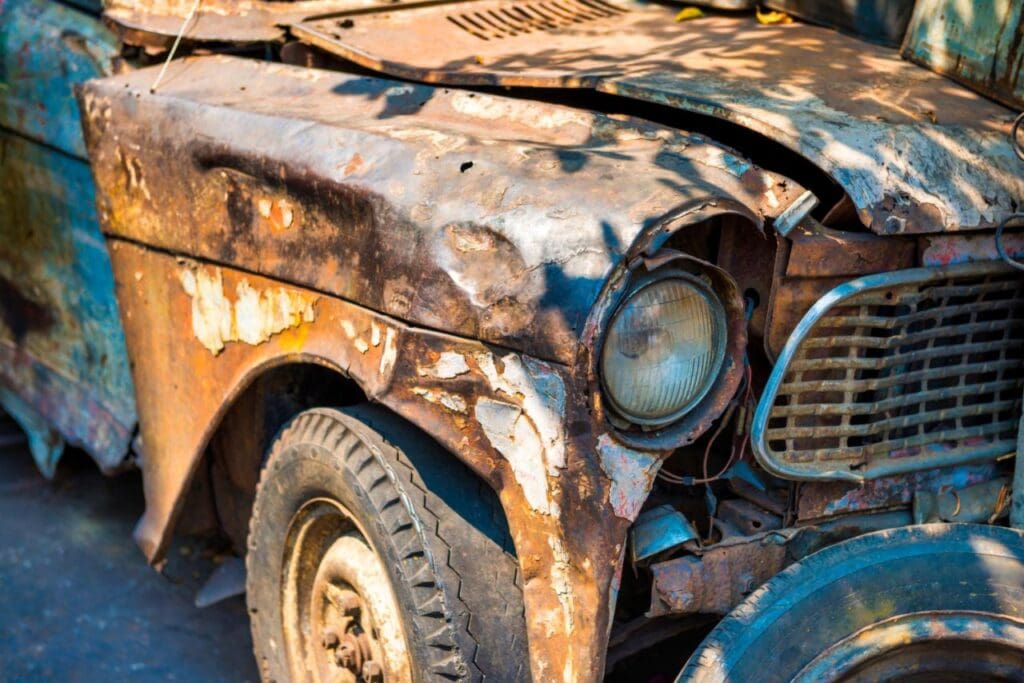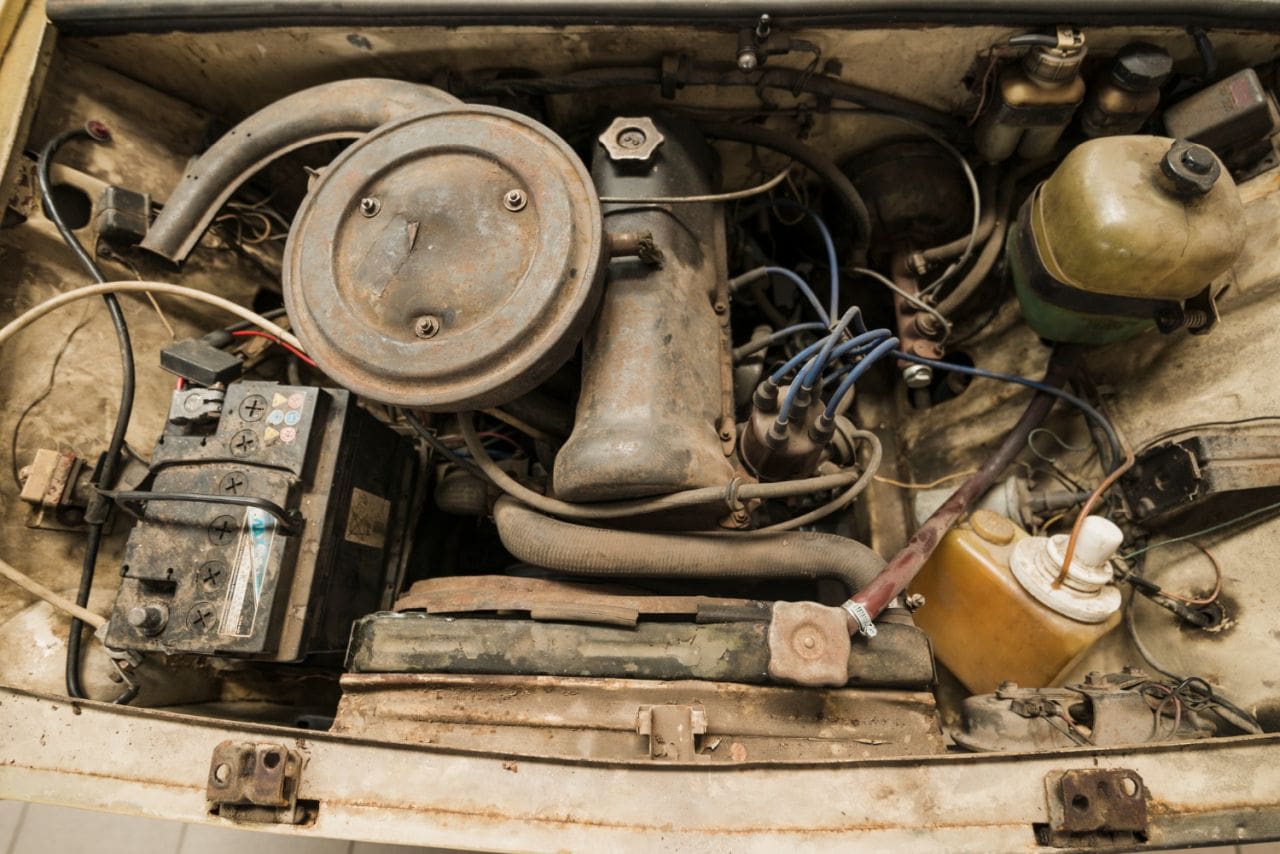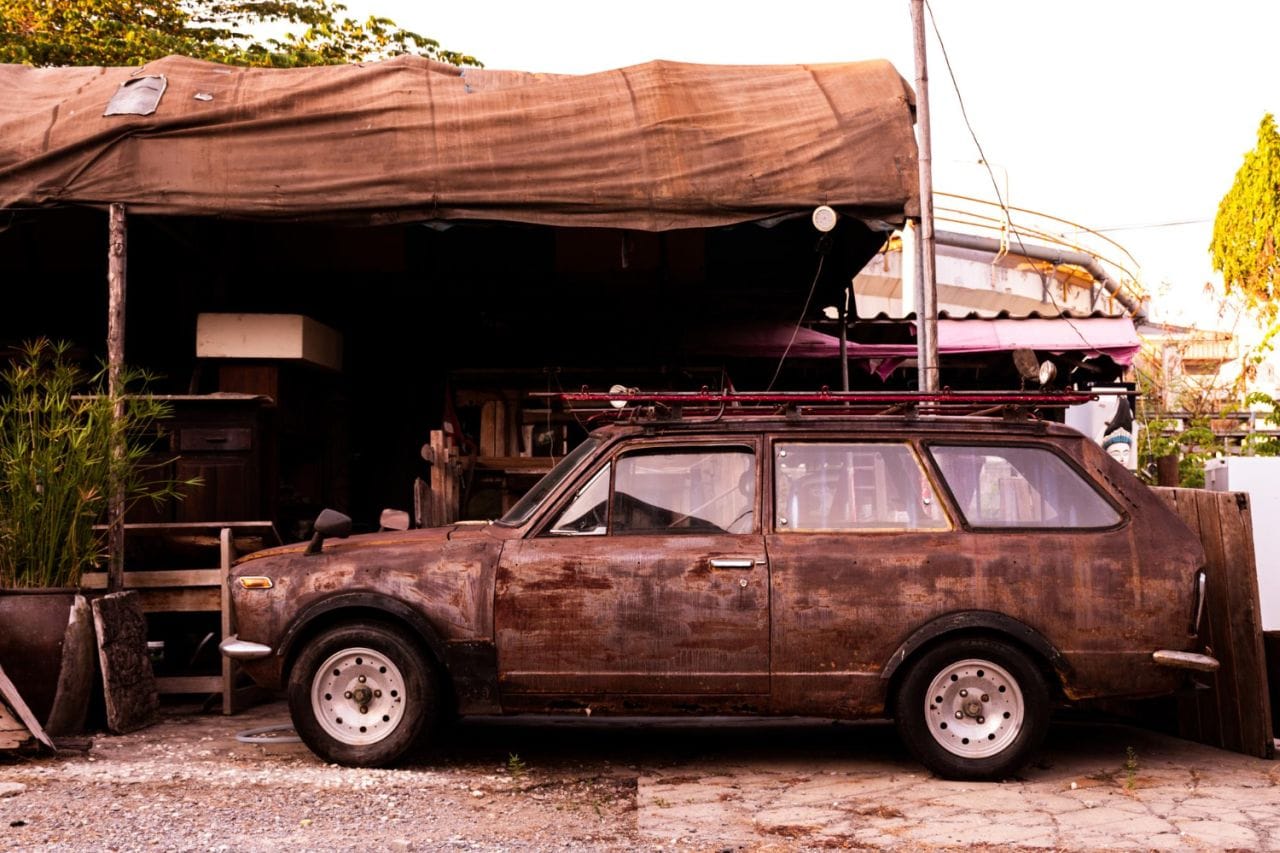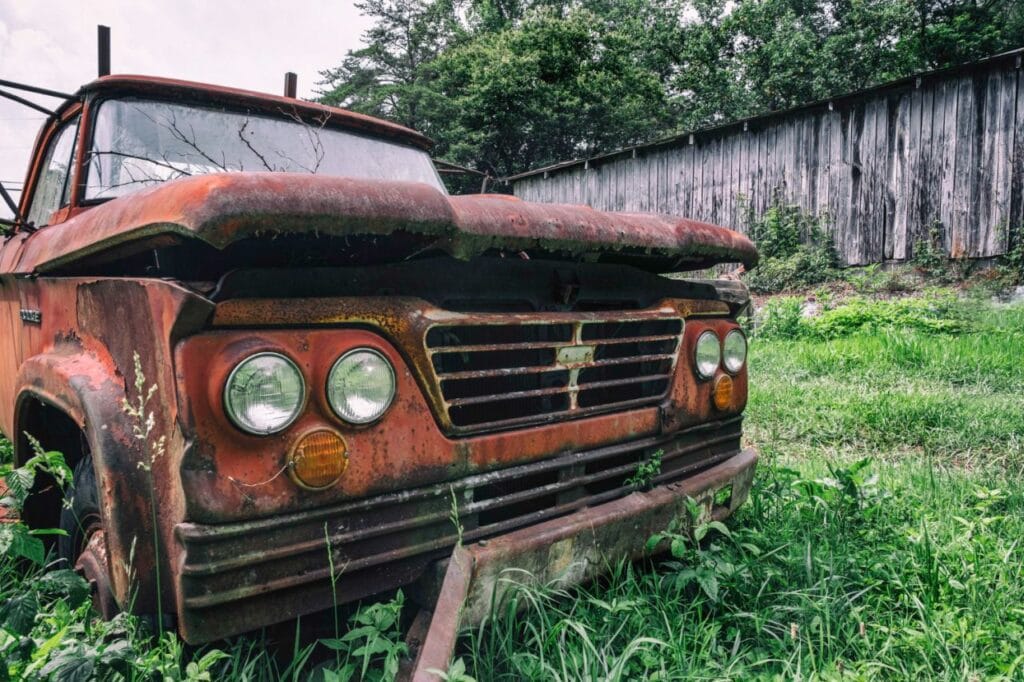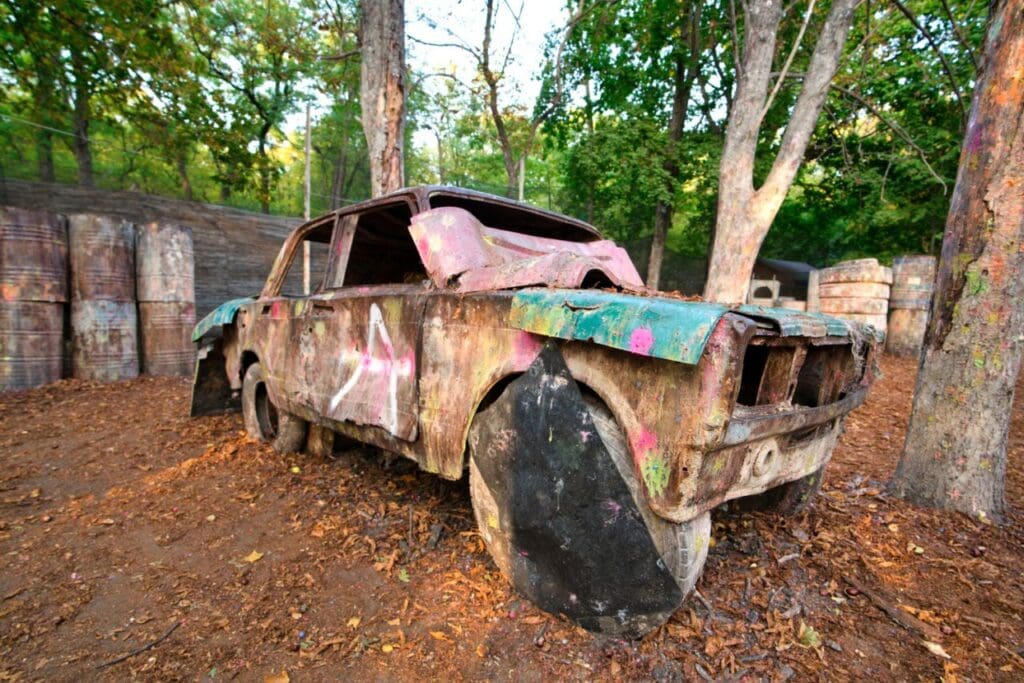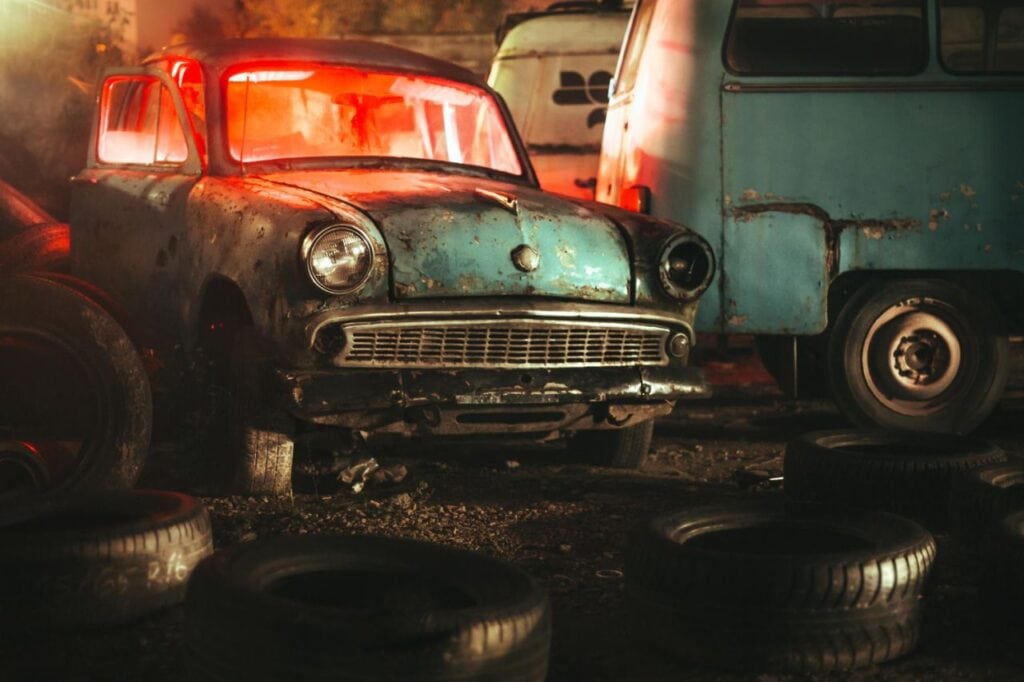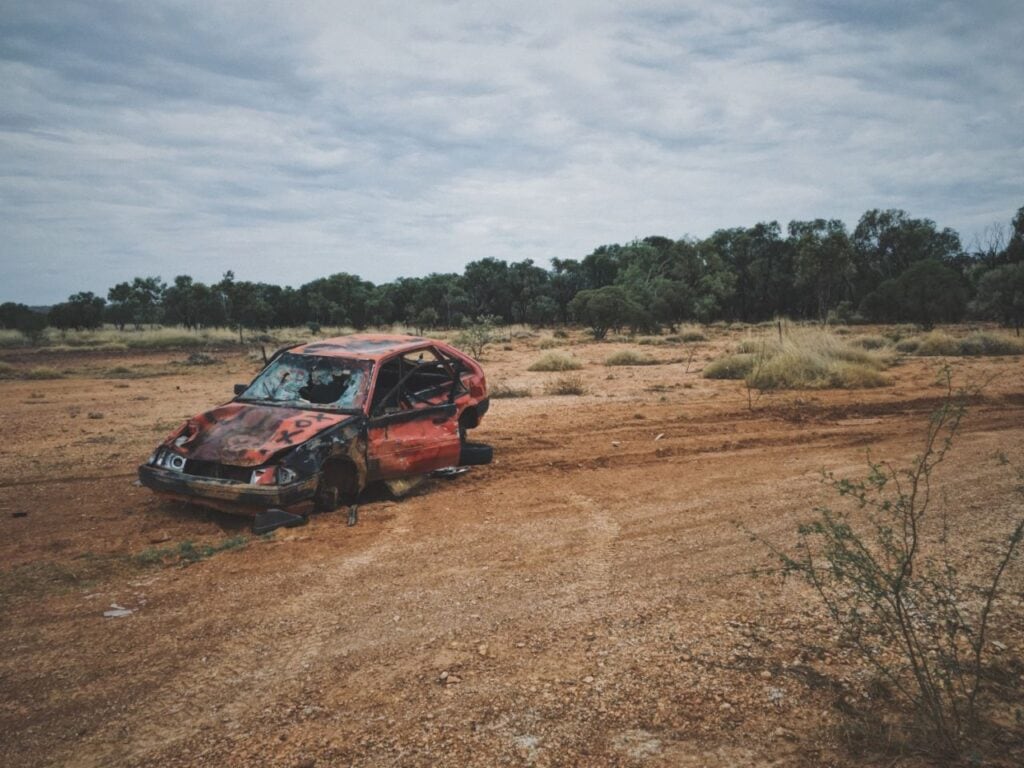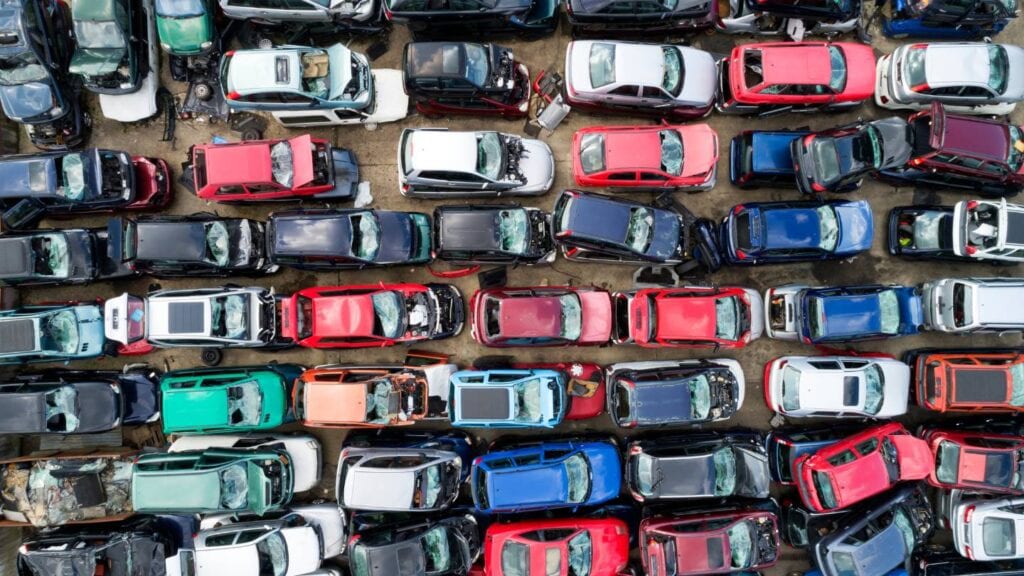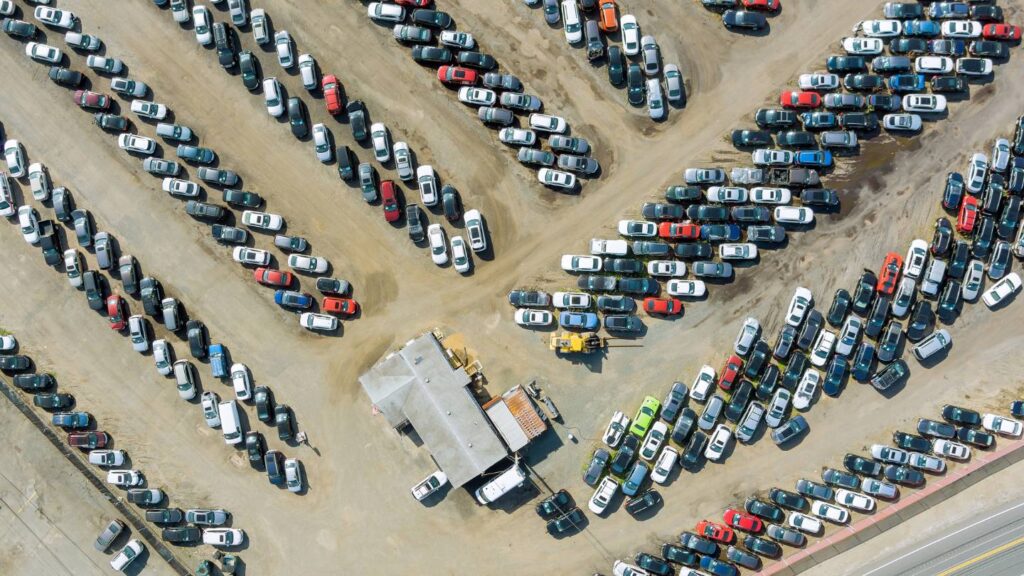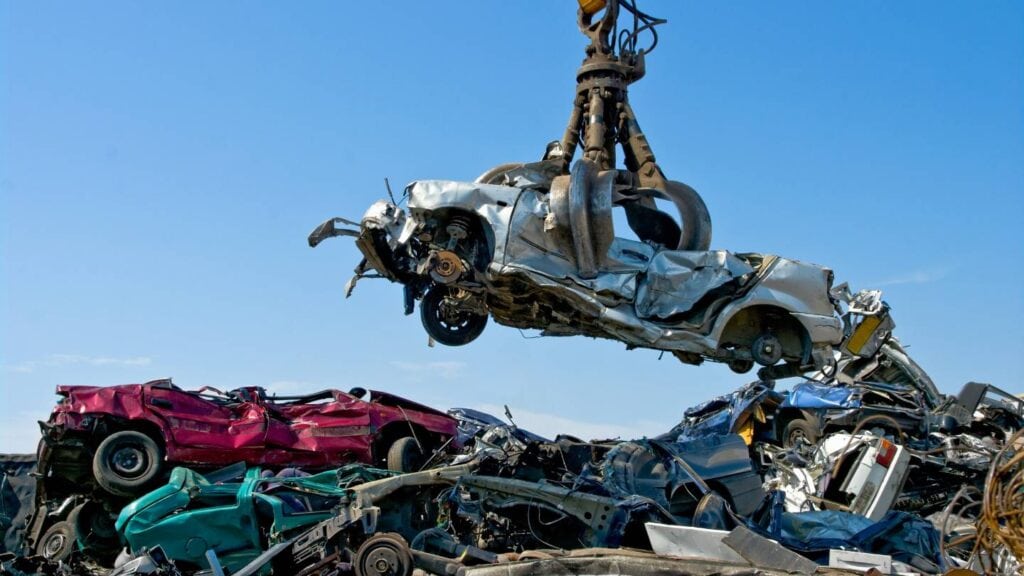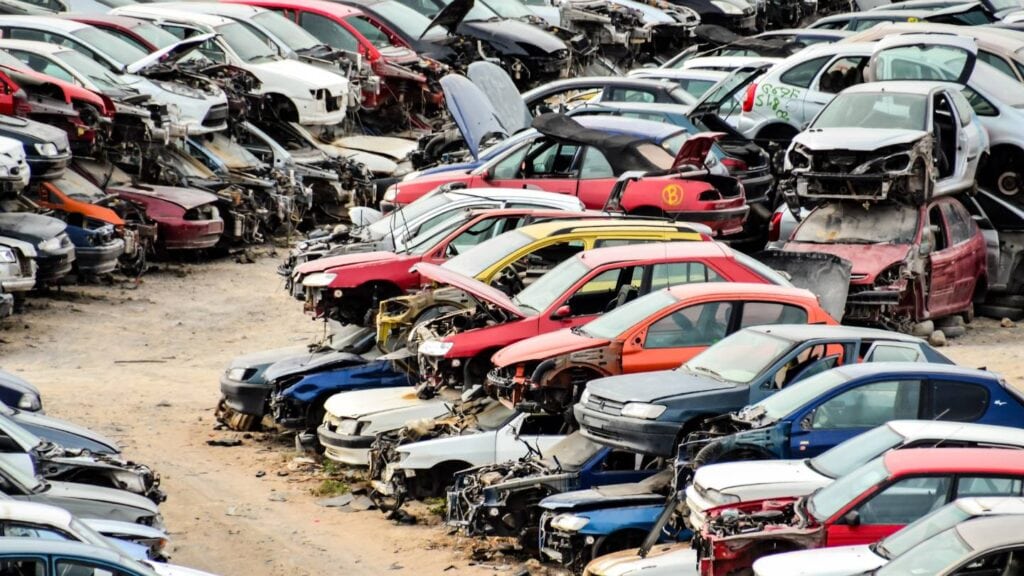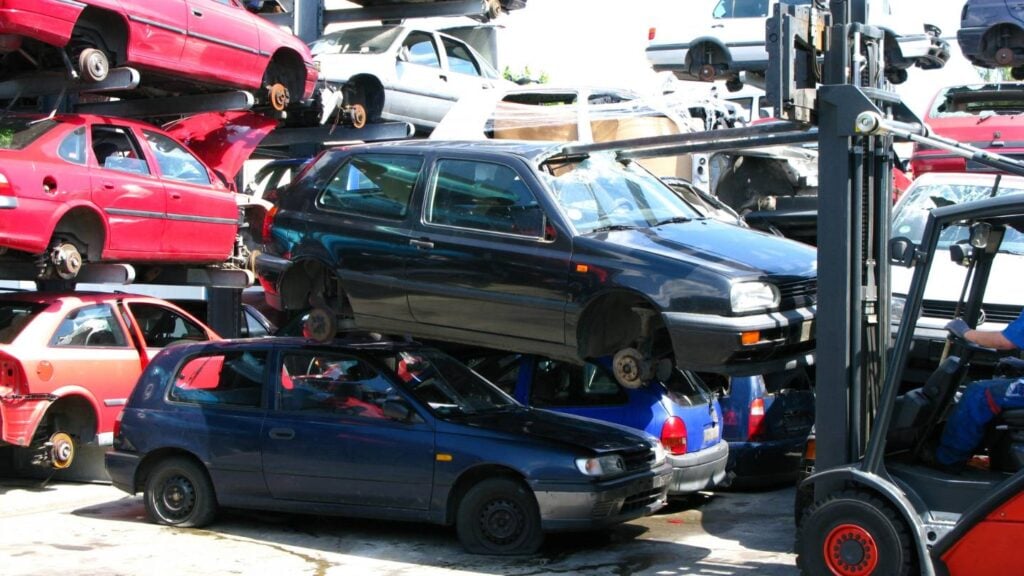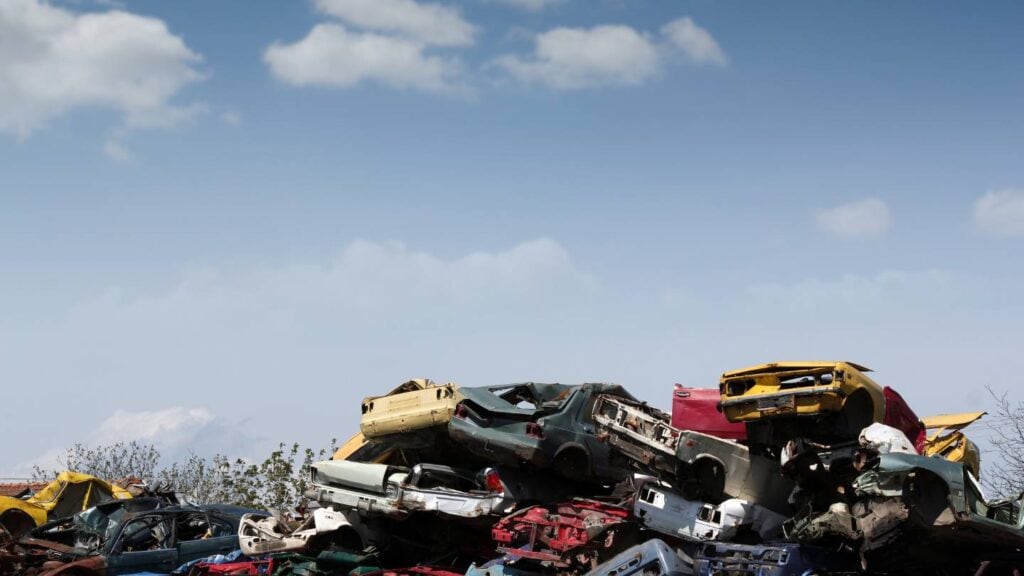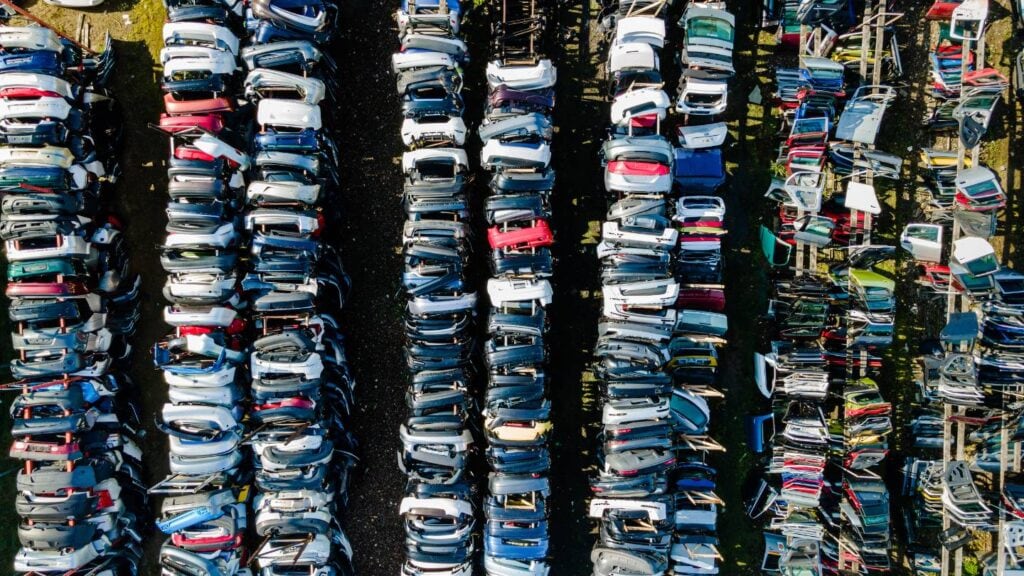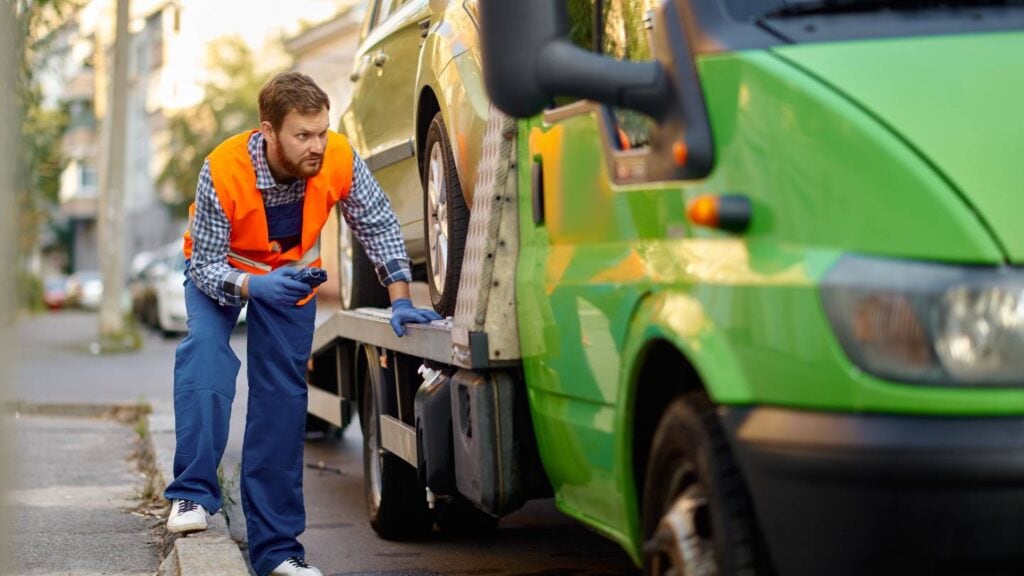Vehicles are often discarded when they have reached the end of their usable life or have been damaged beyond repair.
So, what becomes of these cars after they are no longer safe to drive? To "scrap" a car means to take it apart, salvage any usable pieces, and then dispose of the rest in an eco-friendly way.
Regulations in the area where the car is being scrapped can affect the specifics of the scrapping process.
Batteries, tyres, and potentially harmful substances like oil and fuel should always be removed first. Vehicles are often crushed and shredded into tiny pieces after these parts have been removed.
Once the materials have been shredded, they are shipped to recycling centres to be sorted and reused in the manufacturing of other goods. Aside from the environmental benefits of not having to dump an old automobile in a landfill, scrapping them can also yield useful resources for other projects.
This article will investigate the process of auto recycling and discuss the positive effects on the environment and the economy.
What Exactly Is Scrap Metal?
For the purposes of recycling and reprocessing, the term "scrap metal" is used to describe any material that has been produced from or contains metal. This might be anything from broken furniture and electronics to used auto components and construction supplies.
The process of recycling scrap metal is significant for a variety of reasons, including its positive effects on the environment and the economy. Further, compared to mining and processing new metal, recycling scrap metal uses less energy and produces fewer emissions. Overall, recycling scrap metal is an important part of responsible garbage disposal and conserving scarce materials.
Automobiles, regardless of their operational status, are included among the many forms of metal goods that can be sold or purchased as scrap. All or part of a car that is sold or acquired for the purpose of recycling or reprocessing falls under this category.
A car's metal parts are valuable even if the car itself is no longer usable, thus it's worth recycling. Reducing the need for brand-new raw materials by recycling makes the process more ecologically friendly and sustainable. Recycling scrap metal has additional economic benefits, including the generation of new jobs and increased recycling industry output.
All things considered, recycling scrap metal is an important component of the worldwide effort to minimise waste, maximise efficiency, and advance sustainable development.
The new rules broaden the scope of what can be considered scrap metal based on their metal composition. Anything with less than 2% gold or silver by weight, or less than 80% copper by weight, is now considered scrap metal. A wide variety of products, including electronics, plumbing fixtures, and wire, can be purchased or obtained as scrap for recycling or reprocessing.
The goal of the new legislation is to decrease waste, conserve resources, and encourage more effective recycling procedures, all of which are facilitated by include these products in the definition of scrap metal.
You may be selling used products or automobiles instead of scrap metal if your items don't fit the aforementioned criteria. For instance, if an item's copper content is 80% or above by weight, it is not considered scrap metal but rather a secondhand good.
However, the Act's ban on cash for junk does not apply to those who deal in such items, and they must instead comply with its additional standards for used goods.
Melbourne Scrapped Cars: What Happens?
To be dismantled and recycled, wrecked automobiles in Melbourne, Victoria, are normally sent to a scrapyard or a dedicated recycling facility. A car is normally put through the following procedures during its scrapping process:
Hazardous Waste Disposal
All potentially dangerous components, such as batteries, fluids, and airbags, are removed from the vehicle before it is dismantled.
Checking and getting ready
When your vehicle finally makes it to the scrap yard, it will be inspected for damage and potentially dangerous elements that need to be removed before it can be recycled. Oil, coolant, and fuel are drained and disposed of in an eco-friendly manner before they may cause damage to the surrounding area.
Dismantling
All useful components are taken out of the vehicle and sold. The remainder is reduced in size by crushing.
Recycling
The fragments are crushed, and then the various components, such metal, plastic, and glass, are extracted. After initial processing, these materials are shipped to dedicated recycling centres to be repurposed.
Refuse Disposal
Materials like textiles and rubber that cannot be recycled are disposed of in an eco-friendly manner.
It's important to remember that in Victoria, a Certificate of Destruction (COD) must be issued to the vehicle's owner once the vehicle has been scrapped by a licenced vehicle dismantler.
This certificate attests to the fact that the vehicle in question has been properly decommissioned and is no longer safe for use on public roads.
A car scrap yard's overarching mission is to recycle or repurpose as much of a vehicle as possible to cut down on landfill waste and lessen its overall environmental effect. You can trust that your old car is being treated in accordance with all local, state, and federal standards if you engage with a respected scrap yard.
How Do Scrap Car Removal Services In Melbourne Operate?
Generally speaking, scrap car removal services in Melbourne, Victoria, work the same way anywhere else. Typically, it goes like this:
Get in touch with a car removal service
By looking in the yellow pages or online, you may locate a firm that will come and haul away your scrap automobile in Melbourne. Another option is to get referrals from people you know who have used similar services before.
Please Describe Your Automobile
When locating a scrap car removal service, you'll be asked for information about your vehicle, like the make, model, year, and condition. The junk car removal business will give you an estimate of the automobile's worth based on this data.
Arrange A Pickup Time
In exchange for accepting the scrap car removal service's projected value, you can arrange a time for your vehicle to be collected. The provider will often come to your place to collect the vehicle, saving you time and effort.
Acquire Funds and File Forms
The car removal service will pay you in cash once they have picked it up. A Certificate of Destruction (COD) or similar document will be provided as further proof that the vehicle has been demolished legally and is no longer roadworthy.
Dispensation From Record-Keeping Obligations
As per the new rules, you don't have to wait seven days before selling or donating some used items.
All metals classified as scrap under the Act and the Regulations are included here. Vehicles nearing the end of their useful lives may potentially qualify for a price reduction or waiver.
In addition, if the secondhand dealer keeps a photograph identifying the items, the seven-day retention rule does not apply to copper that is a secondhand good, which is defined as anything that comprises more than 80% by weight of copper.
Because of this exception, copper may be processed more quickly, which is great for recycling and reprocessing efforts.
Last but not least, there is no need to keep items for another week if you buy them from a secondhand store that has had them for at least that long. With this exemption in place, the future buyer is relieved of any additional duty to retain the products because they have already been subjected to adequate examination.
The overarching goal of these exceptions is to promote responsible recycling and waste reduction by striking a balance between the requirement for effective regulation and the efficient and practical handling of secondhand items.
What Do They Do With Destroyed Cars In Melbourne?
When a car is totalled in Melbourne, Victoria, it can be sent to a wrecking yard or licenced vehicle dismantler. The Environmental Protection Authority of the Victorian government has approved these facilities to properly recycle and dispose of old cars in a way that won't affect the environment.
Whenever a vehicle is delivered to a wrecking yard, a mechanic will examine it to see if any of the usable components may be recycled. Engines, transmissions, and body panels that can be reused are taken off the car and sold to others that need them for their own vehicles.
Oil, gas, coolant, and brake fluid are emptied from the engine, and the battery is taken out of the vehicle. Materials such as metal, plastic, glass, and rubber are removed from the vehicle and transported on their separate ways to be recycled or disposed of as required by environmental laws.
Vehicle dismantlers and wreckers in Victoria must follow stringent safety and environmental guidelines, such as the proper disposal of toxic materials like batteries and airbags. This guarantees that a junked car will be disposed of in a safe and environmentally conscious manner.
Conclusion
There are environmental and economic benefits to recycling scrap metal, which is why it is an integral aspect of good waste management.
The global movement to decrease waste, save resources, and encourage more effective recycling includes recycling scrap metal. Disposal of hazardous materials, vehicle disassembly for recycling, and garbage collection are all part of the scrapping process.
Services that remove scrap automobiles in Melbourne function in the same way as those in any other major city. Melbourne has strict safety and environmental regulations that vehicle dismantlers and wreckers must adhere to when disposing of old cars.
Content Summary
- Vehicles are often discarded when they have reached the end of their usable life or have been damaged beyond repair.
- To "scrap" a car means to take it apart, salvage any usable pieces, and then dispose of the rest in an eco-friendly way.
- Regulations in the area where the car is being scrapped can affect the specifics of the scrapping process.
- Vehicles are often crushed and shredded into tiny pieces after these parts have been removed.
- Once the materials have been shredded, they are shipped to recycling centres to be sorted and reused in the manufacturing of other goods.
- Aside from the environmental benefits of not having to dump an old automobile in a landfill, scrapping them can also yield useful resources for other projects.
- The process of recycling scrap metal is significant for a variety of reasons, including its positive effects on the environment and the economy.
- Compared to mining and processing new metal, recycling scrap metal uses less energy and produces fewer emissions.
- Recycling scrap metal is an important part of responsible garbage disposal and conserving scarce materials.
- Automobiles, regardless of their operational status, are included among the many forms of metal goods that can be sold or purchased as scrap.
- Reducing the need for brand-new raw materials by recycling makes the process more ecologically friendly and sustainable.
- All things considered, recycling scrap metal is an important component of the worldwide effort to minimise waste, maximise efficiency, and advance sustainable development.
- The new rules broaden the scope of what can be considered scrap metal based on its metal composition.
- Anything with less than 2% gold or silver by weight, or less than 80% copper by weight, is now considered scrap metal.
- A wide variety of products, including electronics, plumbing fixtures, and wire, can be purchased or obtained as scrap for recycling or reprocessing.
- The goal of the new legislation is to decrease waste, conserve resources, and encourage more effective recycling procedures, all of which are facilitated by including these products in the definition of scrap metal.
- You may be selling used products or automobiles instead of scrap metal if your items don't fit the aforementioned criteria.
- For instance, if an item's copper content is 80% or above by weight, it is not considered scrap metal but rather a secondhand good.
- To be dismantled and recycled, wrecked automobiles in Melbourne, Victoria, are normally sent to a scrapyard or a dedicated recycling facility.
- Checking and getting ready When your vehicle finally makes it to the scrap yard, it will be inspected for damage and potentially dangerous elements that need to be removed before it can be recycled.
- It's important to remember that in Victoria, a Certificate of Destruction (COD) must be issued to the vehicle's owner once the vehicle has been scrapped by a licenced vehicle dismantler.
- This certificate attests to the fact that the vehicle in question has been properly decommissioned and is no longer safe for use on public roads.
- A car scrap yard's overarching mission is to recycle or repurpose as much of a vehicle as possible to cut down on landfill waste and lessen its overall environmental effect.
- You can trust that your old car is being treated in accordance with all local, state, and federal standards if you engage with a respected scrap yard.
- Generally speaking, scrap car removal services in Melbourne, Victoria, work the same way anywhere else.
- By looking in the yellow pages or online, you may locate a firm that will come and haul away your scrap automobile in Melbourne.
- When locating a scrap car removal service, you'll be asked for information about your vehicle, like the make, model, year, and condition.
- The junk car removal business will give you an estimate of the automobile's worth based on this data.
- In exchange for accepting the scrap car removal service's projected value, you can arrange a time for your vehicle to be collected.
- In addition, if the secondhand dealer keeps a photograph identifying the items, the seven-day retention rule does not apply to copper that is a secondhand good, which is defined as anything that comprises more than 80% by weight of copper.
- Last but not least, there is no need to keep items for another week if you buy them from a secondhand store that has had them for at least that long.
- With this exemption in place, the future buyer is relieved of any additional duty to retain the products because they have already been subjected to adequate examination.
- The overarching goal of these exceptions is to promote responsible recycling and waste reduction by balancing the requirement for effective regulation and the efficient and practical handling of secondhand items.
- When a car is totalled in Melbourne, Victoria, it can be sent to a wrecking yard or licenced vehicle dismantler.
- The Environmental Protection Authority of the Victorian government has approved these facilities to properly recycle and dispose of old cars in a way that won't affect the environment.
- Whenever a vehicle is delivered to a wrecking yard, a mechanic will examine it to see if any of the usable components may be recycled.
- Materials such as metal, plastic, glass, and rubber are removed from the vehicle and transported in their separate ways to be recycled or disposed of as required by environmental laws.
- Vehicle dismantlers and wreckers in Victoria must follow stringent safety and environmental guidelines, such as the proper disposal of toxic materials like batteries and airbags.
- This guarantees that a junked car will be disposed of in a safe and environmentally conscious manner.
Frequently Asked Questions about Scrap Cars
Vehicle recycling and scrap metal sales are two options for getting rid of obsolete vehicles in Melbourne, Victoria. Victoria's government has enacted rules to limit damage to the environment from junked vehicles.
Vehicle owners are obligated to take their scrap automobiles to an authorised vehicle disposal facility or a certified used car dealer in accordance with these rules. It is mandatory for these establishments to reuse or recycle all usable components of the vehicle.
There are also a number of government-backed programmes working to eliminate the use of outdated vehicles. The government of Victoria, Australia, offers incentives to those who exchange in older, more polluting cars for newer, more fuel-efficient ones.
In Melbourne, Victoria, the fate of old cars varies depending on the circumstances, although there are ongoing attempts to lessen the environmental toll of their disposal and promote the usage of cleaner, more fuel-efficient automobiles.
Several factors influence how much cash you can earn for wrecking a car in Melbourne. The current market value for scrap metal, the car's brand and model, its age, and its condition are all factors that can affect the scrap value. Also, the value of scrapping a vehicle can vary depending on the scrap yard or recycling centre you visit.
In Melbourne, wrecking an automobile can nett you between $50 and $500. However, you should be aware that some facilities may impose additional fees for towing the vehicle or for the disposal of hazardous materials. In addition, if your car is in good functioning order, you might obtain more money by selling it as a whole rather than for parts.
Get the lowest price for scrapping your car by comparing the rates of local scrap yards and recycling centres. Car contributions to charity that use the proceeds to further their missions are another option that can net you a tax write-off.
Vehicles that have reached the end of their useful life in Melbourne, Victoria, Australia, are normally taken to a scrapyard or auto recycling plant. Recycling centres are responsible for the safe and eco-friendly disposal of used, broken, or unwanted automobiles. In most cases, the car is first dismantled to remove any potentially dangerous components, like as batteries or fluids, before being crushed and the recyclable parts removed.
In addition, people can get money for recycling their old cars through approved dealers through the "Cash for Cars" programme, which is run by the Victorian government. The goal of this initiative is to increase the availability of environmentally friendly modes of transportation while decreasing the amount of older, dirtier cars on the road.
Search online for authorised recycling facilities if you need to get rid of an old automobile in Melbourne, or get in touch with the Victorian Environmental Protection Authority to learn more about the Cash for Cars programme.
The government offers a discount of 4–6 percent off the ex-showroom price of a new vehicle if you discard your old automobile. Manufacturers of motor vehicles are obligated to provide a 5 percent price cut. Depending on the state government, you could get a road tax credit of up to 25 percent on your new automobile.
Today, the average lifespan of a car is 12 years or 200,000 miles. Electric cars and other high-tech automobiles can travel considerably further than that, up to 300,000 miles. An automobile's typical lifespan used to be around eight years or 150,000 miles ago.

